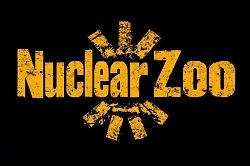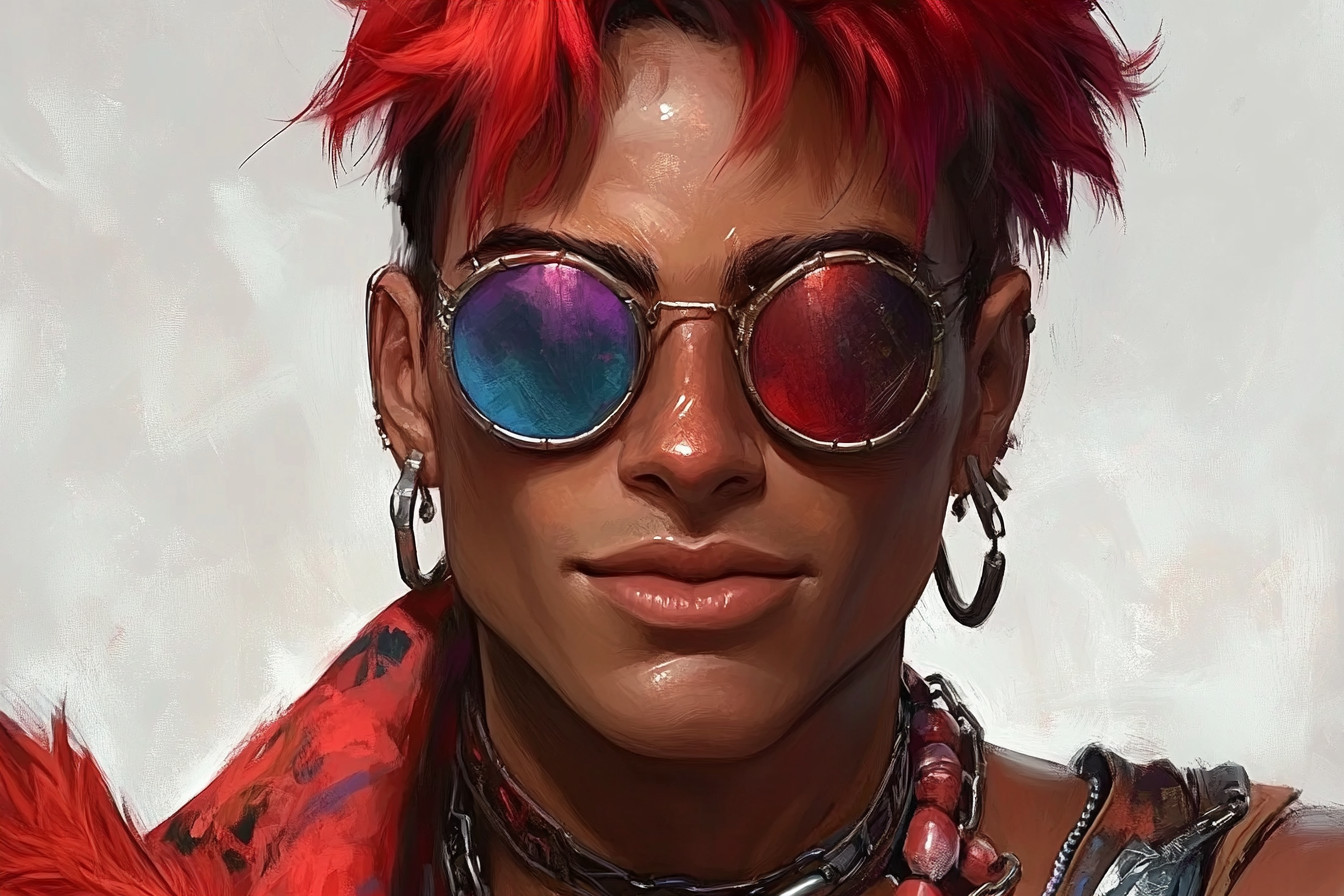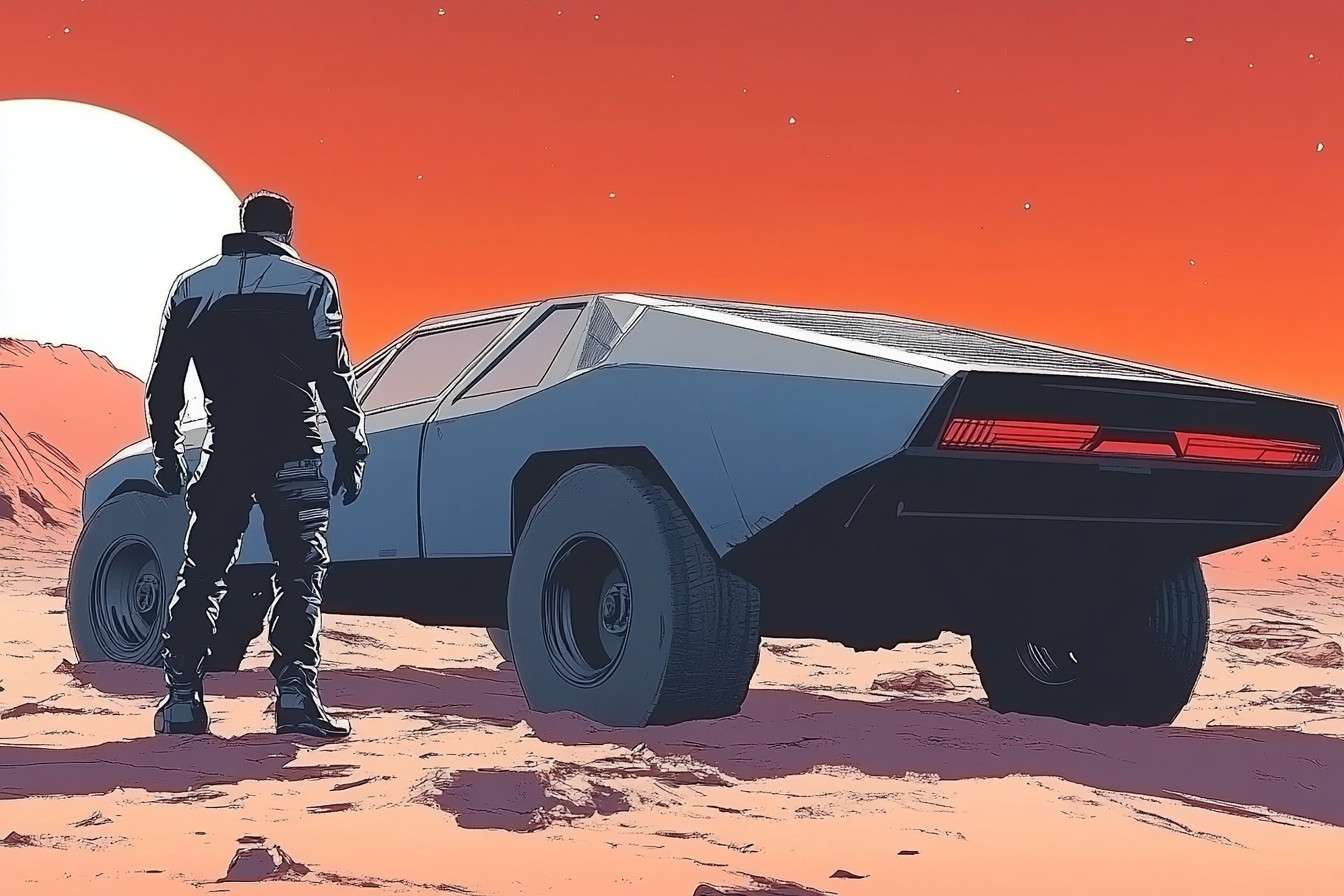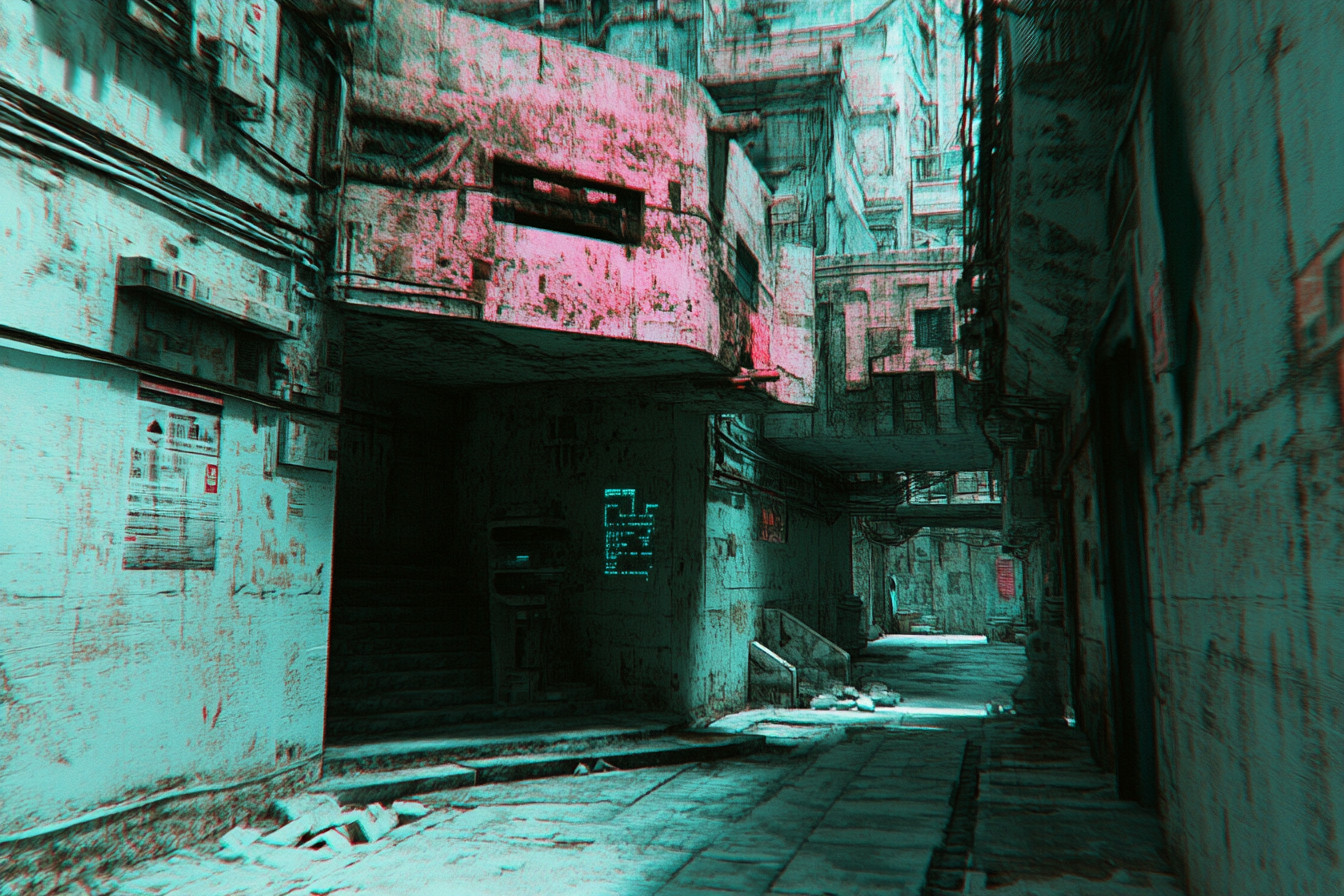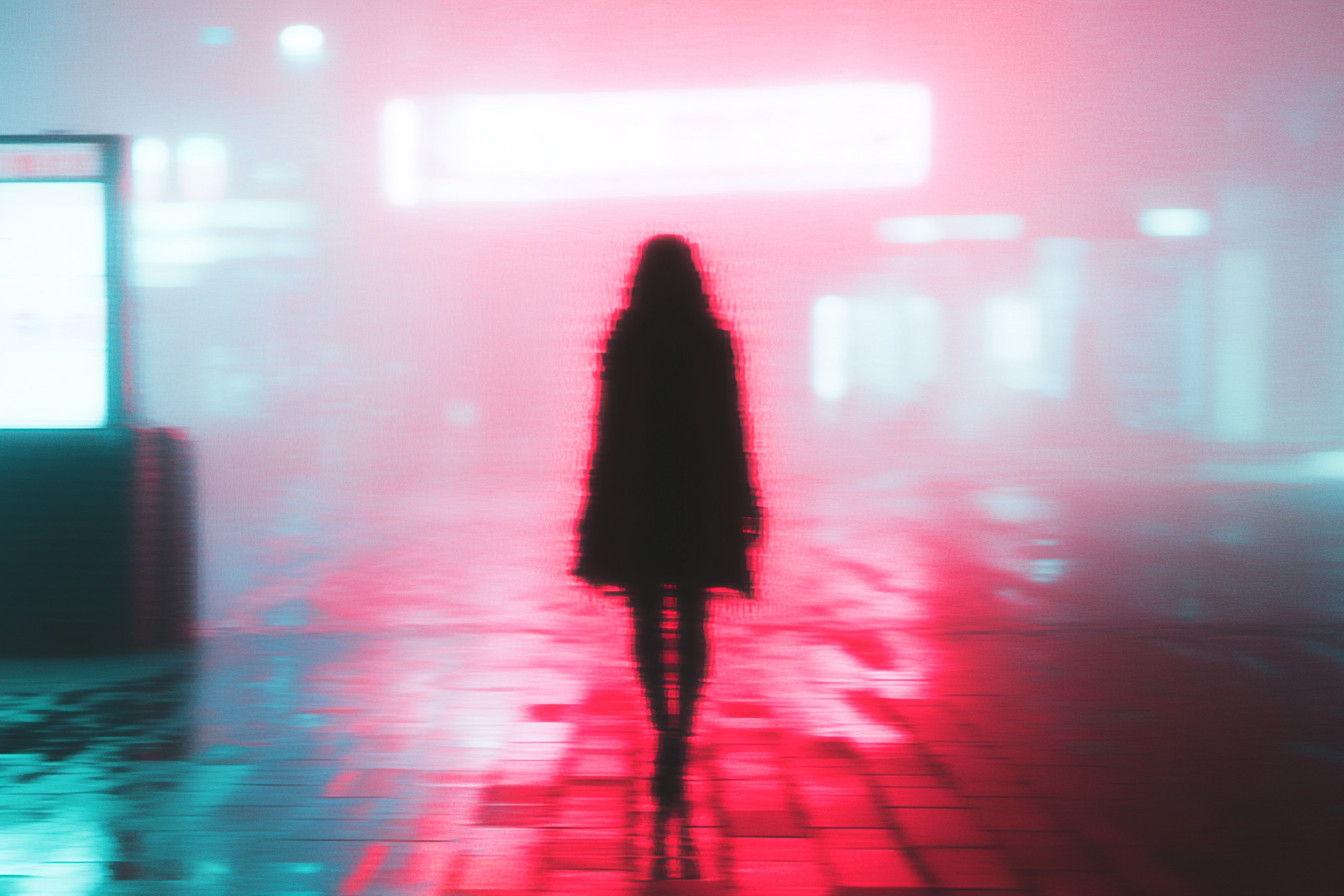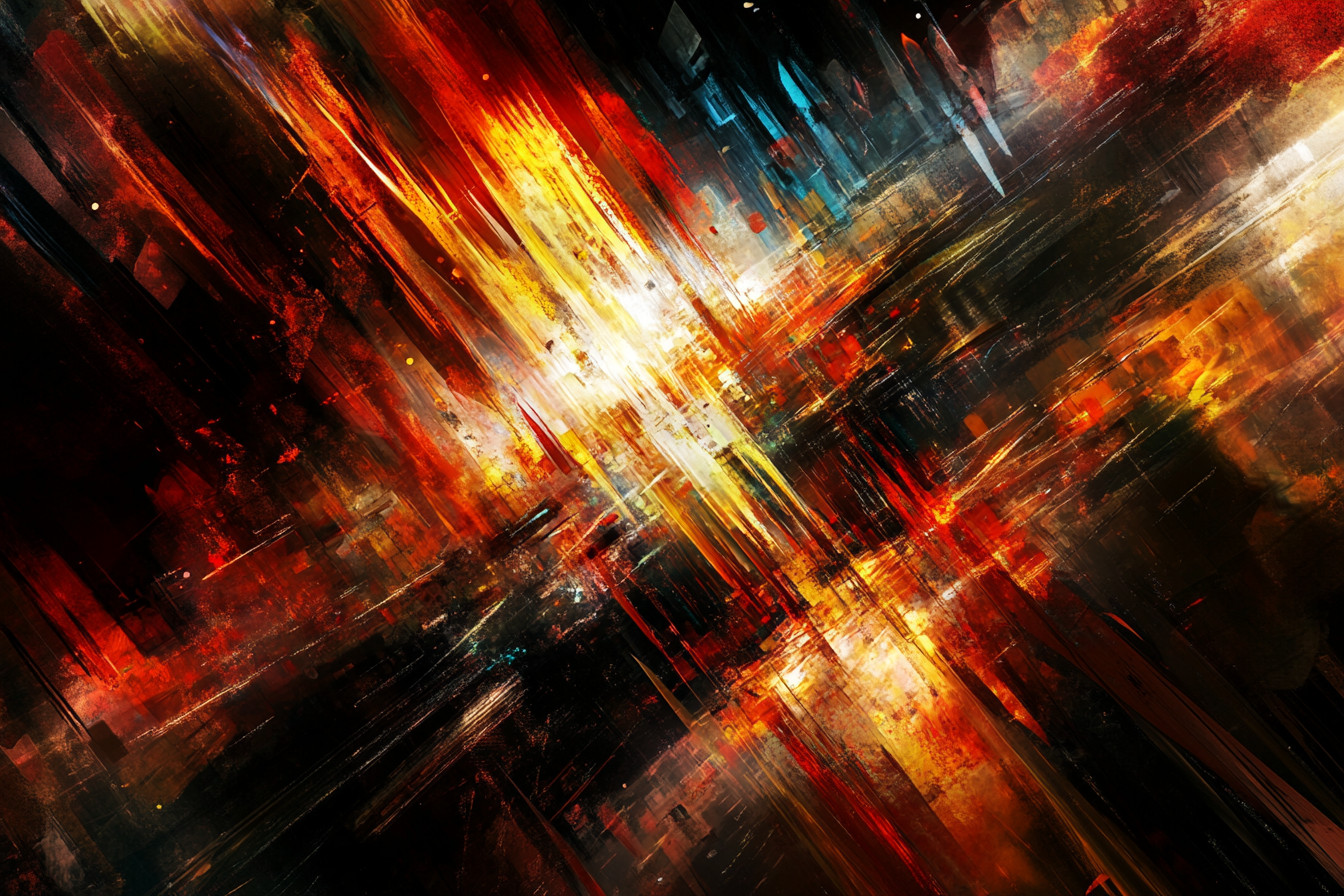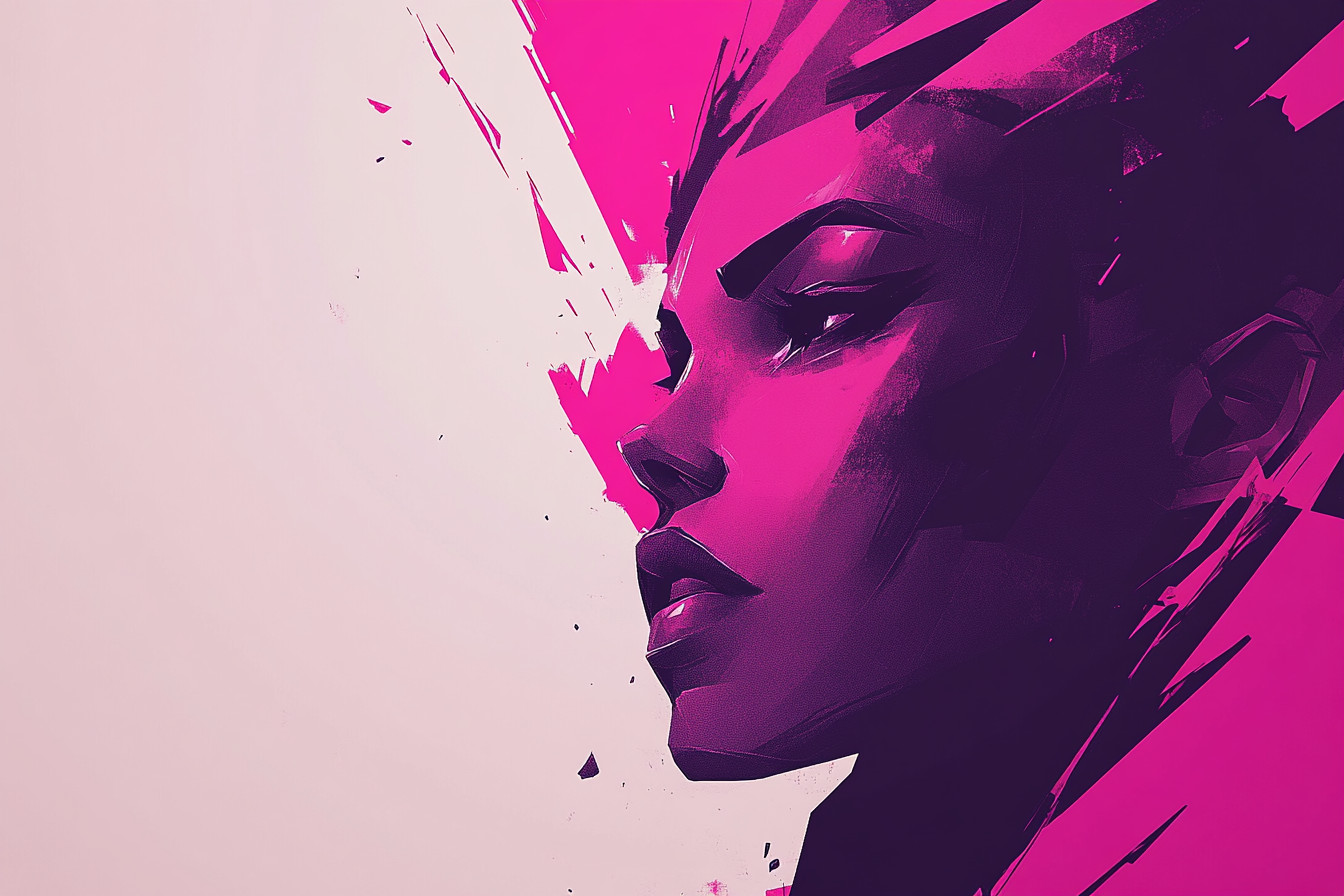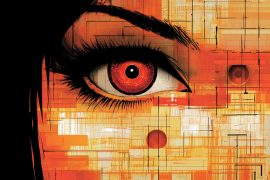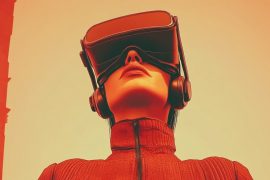It’s somewhat the norm these days for self-proclaimed sci-fi fans to announce that they’ve “moved past” the neon, rain drenched alleyways of cyberpunk dystopia. “Ugh, you could never pay me to relocate there!” they grimace as they pretend to scoff at yet more cyberpunk mega city shadow business multi-corp franchise subsidized SysTem Towers Twitter fraud. And yet, if we were to truly examine ourselves, deep down, cyberpunk is that dark angsty phase some of us never really grew out of – a cliche perpetually rebellious teenager endlessly looping.
Back then, what now fills our aging hearts with cold is ripped off from Dreampunk soles of anger, antiheroes smothered in ’90s gloomy fantasies spun with giddy synthwave beats and added neon exclamation marks. Add a dash of emo tech-adept superships-with-wifi haunted emo chill for extra transcendental flavor. Claim we have outgrown it, we indeed, for a brand new 21 century ill boy, but tell that to our browsing history. Cause go looking for your “I guarantee you downloaded at least one of this” Blade Runner: Enhanced Edition.
We’ll start from the very beginnings. The dystopian megacity – the sprawling, overpopulated, and smog-infused megalopolis that fans love to loathe. They roll their eyes while gripping their copy of Neuromancer. But I observe the same people building lines at events like CyberCon where they get thrilled and agitated to engage in myriad behaviors depicted in these surroundings. I likely grabbed one from a Ghost in the Shell VR booth from simulation of ‘jack-in’ to Tokyo. The line that extended around the building was people waiting like they were ready to burst. When they donned the VR headsets, there was a glint of wonder in their eyes, and when they took off that headpiece you could tell: look now something has brightened out inside them – it’s probably how they would recount something had emerged at least attributed numerous times whilst gazing into the void.
If they’re so overplayed, why do we love seeing these grungy landscapes overflowing with technology? The answer is simple: they appease our need to escape, and I don’t mean the kind where you travel to a distant galaxy filled with talking trees. In broader terms, cyberpunk enjoys giving us a dirty, but almost clean enough, presented reality where you can hack your way through barriers that exist between “I/me against life itself,” knowledge isn’t power, it’s survival — reality that is our world but with the dials cranked up and the shadows dimmed. It is in fact, the darkness which we relish stepping into.
This is where cyberpunk thrives. The setting is oddly familiar — sharp enough to recognize but vague enough to enjoy it. That is what keeps us intrigued.
Let’s now turn to the real reason people enjoy cyberpunk: the advanced technology. The genre emerging during the peak of technological development indicates that cyberpunk is almost soothingly prescient. In this genre, technology can do a 180-degree spin in a way that is unimaginable—saving us in one instance and dooming us in another. And it is our responsibility to reflect critically on those scenarios. Of course, we could chuckle and eye-roll when yet another version of a hero hacker fighting a mega-corp narrative gets thrust onto streaming—but then watch the trailer’s every neon skyline and augmented reality interface in a new light.
Some trope includes the rogue AI, which can be spotted in every single cyberpunk story ever told. It went from a scifi concept philosophy in 80s movies to a refined and all-powerful nightmare. As much as we hate clichés, but tell me, who doesn’t love a good old Ex Machina? I remember when it was all the buzz; genre fans turned out in droves and some even called ‘AI-gone-awry’ novels insufferably predictable. To return to the topic at hand, during the launch of Cyberpunk 2077, the discourse around the game was centered not even on the issues with the game or Reeves’ arbitrary cameo, but rather around the digital universe where AI could interact weave itself into the tapestry of history or transform from a mere object to a participant.
Avatar-hunting for adventure games and taking staggering journeys through the dangerously dark, yet unbelievably alive, technological world had been hours of experience.
The underlying joy of cyberpunk, perhaps, is that it builds off of contemporary technologies and transforms them into something incredibly sexy. To put it another way, the self-driving cars and chatty homes by the day are eerily capable of conversations with sophisticated chatbots. All of this contributes to a gradual slide to something that feels… actually pretty cyberpunk. Except in the realm of neon-splashed film science fiction where everything is turned up to 11. Rather, it is elements of the human experience, not simply for convenience but rather to survive in a coexisting world where humans and machines meld together is a sight viewed through rain-slicked panes.
At expos like FutureTech Expo, all it takes is a *glance* for someone to associate current technology trends with cyberpunk fantasies. People hushed in awe, many of whom claim to have outgrown the glitz and glamor of cyberpunk, encircle demonstrations showcasing advanced virtuoso prosthetics and power exoskeletons VR suits that augment strength and speed. In a developer’s terms, “a technology trend section” is a domain that delineates fact from fiction. Wherever the tethering is done, it goes beyond simply being drawn in by new and shiny things.
We seem to be cherishing novels we watched in our childhood as we gradually step into them (*at least* what has looked like our reality from the *what if* films has been like The Matrix). Adapting to a new changed is something pretty stimulating which gives us overwhelming feelings, and for that simple reason, human beings enjoy imagining themselves to be them – having futuristic sci-fi cyborg technologies among us.”
Some argue that cyberpunk is stuck in a rut—always futuristic, filled with tech-induced class division, and the sole anarchist attempting to bring it all crashing down. In the end, if you go extremely deep into it, the themes that tend to emerge are rather profitable because they capture both fears and desires. In this day and age, where consumer privacy is a product on the market and surveillance is everywhere, the world described in the pages of cyberpunk is not fiction, but rather an exaggerated version of reality. And it’s fascinating because it reflects a world full of wonder and terror where technology is both the enemy and the misguided, well-intentioned savior.
Ah, the never-ending appeal of the dystopian landscape. It’s a blackhole of our unmaking that is boundless in nature, but allllways, I mean always pulls us in at the end. No matter how many times we try to proclaim otherwise. Why? Because cyberpunk not only predicts a possible future but also gives insight into hindsight. Science fiction, 80s themed, might be as wild as it gets, but the genre does not survive simply because of the outdated lunar fetishes that force us into retro style entertainment (Hi, Cyberpunk). The unreal world does not survive because it is bound to canon that must sulk on screen from time to time. It adapts to our reality, fulfilling the ever-changing worries of its time just like the debates on technology of today’s era still do.
Let’s face it, there is a hidden side of us that enjoys thinking about a scenario where imagination comes to life and there is an even more dystopian world than ours out there that we can explore alongside a technology levelled up enough to make reality feel like a stretch.
Recall Altered Carbon? I knew with full assurance that it would evoke the identical responses of “I saw this a couple years ago on Netflix” and yet, as if by wizardry it shifted polish to being considered, if only for a moment, as high art that has been populist enough to inspire countless and long think pieces arguing anything from the true meaning of human selfhood or cognitive self to something as basic as digital immortality being unemotional in its essence. It was fascinating to witness how, after watching this show, fans devoured it and then took to the message boards that same weekend to dissect every plot twist in between daydreams of what would it be for you if you could just resleeve into another body and take death for a spin.
This perfectly demonstrates the love it or hate it relationship that I share with it. The complaint, naturally part and parcel with trying to overly simplify the experience as tech-shock dystopian society stylized horror that society has toddler-grade attention span complaints of it all being derivative, is most people’s yammering-and-gershawndy. We are collectively, simplicity at its finest, suckers for watching technology multiplied aspirationally at their digits speed eat their own heads – and oh the ‘utter horror engaging’ irony of something so real happening is one part morbidly curious while equally wanting to turn away and die — think train wreck HTC Vive style.
Nostalgia aside, is there something that keeps us from moving on completely with cyberpunk? As some sort of mental world, it enables us to ruminate upon all of our fears and wishes placed into an endless future void without the risk of an existential pull on our being, especially if we exist in this sandbox where megacorps control our lives, AIs have taken society and humanity’s only option left is to outwit civilization. The show provides a space for all this balance to rupture as we consider the ethics of the oppressive surveillance we are subjected to, how far can we go to losing privacy transformed disguise into maps akin to classrooms full of “Marauder’s Maps” or BDSM dungeons packed with dungeons filled with dungeons that…no matter how handicapped could bring us dangerously close to a programmable digital utopia just five algorithm tweaks away from dystopianceland.
I first experienced it in person at a hacker meetup in an ancient Brooklyn warehouse where the organizers had set up some pop-up Akira-like sensory-overloading tent. The audience? A melting pot of hackers, bitcoin enthusiasts, and VR addicts—likely way too advanced for cyberpunks’ old bag of tricks. Sure enough, they were discussing how blockchain could enable the Megacorps we are so often cautioned about in cyberpunk to be just as shady—while Instagramming selfies of themselves with the neon Night City from Cyberpunk 2077 behind them. There is this thing at the back of our mind where we don’t simply tolerate cyberpunk, but rather wish and at times, even long for a world like this because it allows us to imagine ourselves actually walking those dimly lit streets much in the same way they hope games would guide them through shadowy alleyways trying to escape an evil AI pursuer, and instead of using the futuristic gadgets, they’d gratefully hack their way to some better frontiers or at the very least, something cooler.
This is where the real magic lies, as it allows us to play at rebellion without actually being rebellious, and that is what makes the black-magic mojo work. The term “cyberpunk” captures this duality; it is a construction of technical (“cyber”) and of rebellious spirit (Punk). At this point, we are still “cyber” in regard to what we use in our daily life and still “wish” to think of ourselves as punk. We live in a world controlled by Big Tech, data being new oil; this is to say, the cyberpunk narrative could have been escapist digital fantasy, and misleadingly appealing.
What this means is — as flawed and lowly humans we are, we are one hacked firmware update away from being the antiheroes of our own story.
It is easy to dismiss thoughts that a genre could have anything new to offer, and then reviews of a title such as Deus Ex: Mankind Divided or a series such as Love Death & Robots comes out and you are looking to see what else can they explore. At this stage, the ‘twist’ is somehow akin to when you spot it from a distance, but in spite of yourself, still enjoy watching it roll out, and where the genre’s tropes are beaten to the ground, these “tropenames” are now a mantra as repetitive and soothing as prayer beads.
In this case, we are given something that allows us to peek into the void of the wish or fear of what could come next, and then pulling ourselves back to our fantastic paranoid state.
Ultimately, cyberpunk is more than a genre; it is an alive retelling of where humanity finds itself headed. It depicts the effects of crossing the boundaries of human and machine, of technology and society reaching a dystopian singularity. Freedom is what you do with what’s been done to you. The closer we get to a world filled with AI controlling decision making, AR overlays, and the endless whir of everything digital, it feels less like an escapist’s rest stop, and more like a sneak peak to a burlesque show. And perhaps that is why, regardless of how much it makes us roll our eyes, we endlessly return for more.
Aside from that, tell me, which one of us doesn’t dream of a world where you could jump inside the net, and even for just a short while, rewrite the rules of reality?
